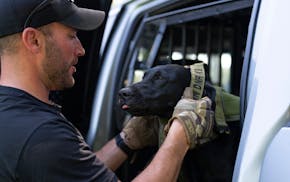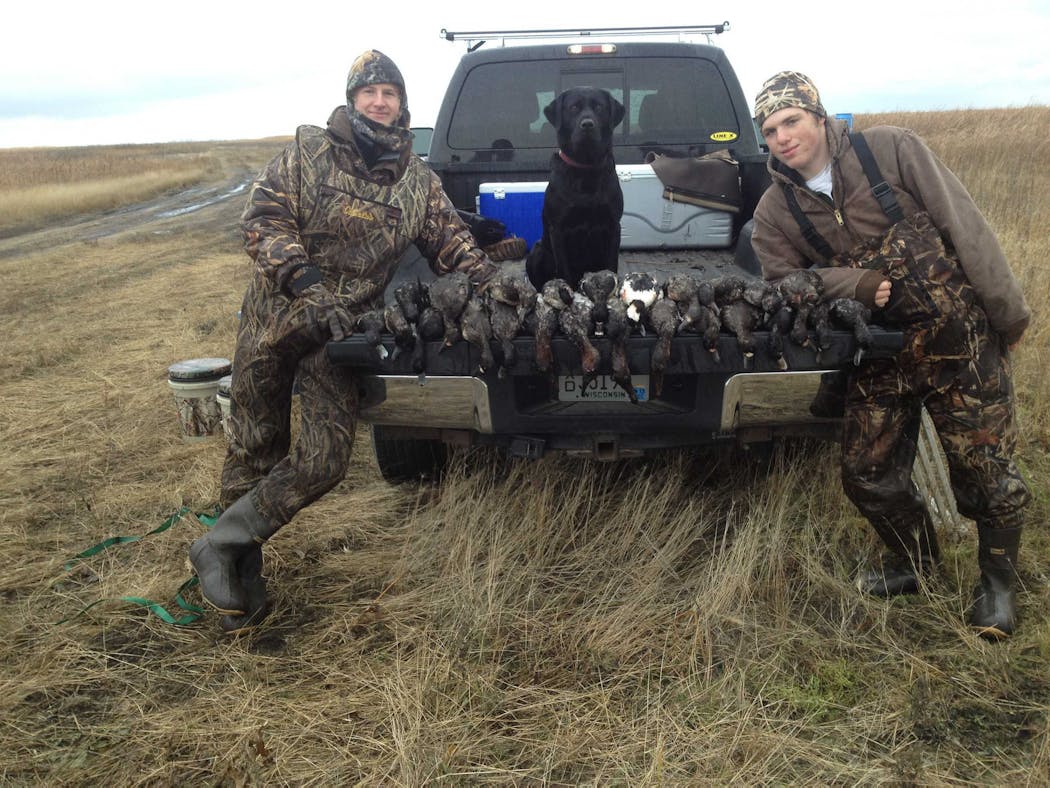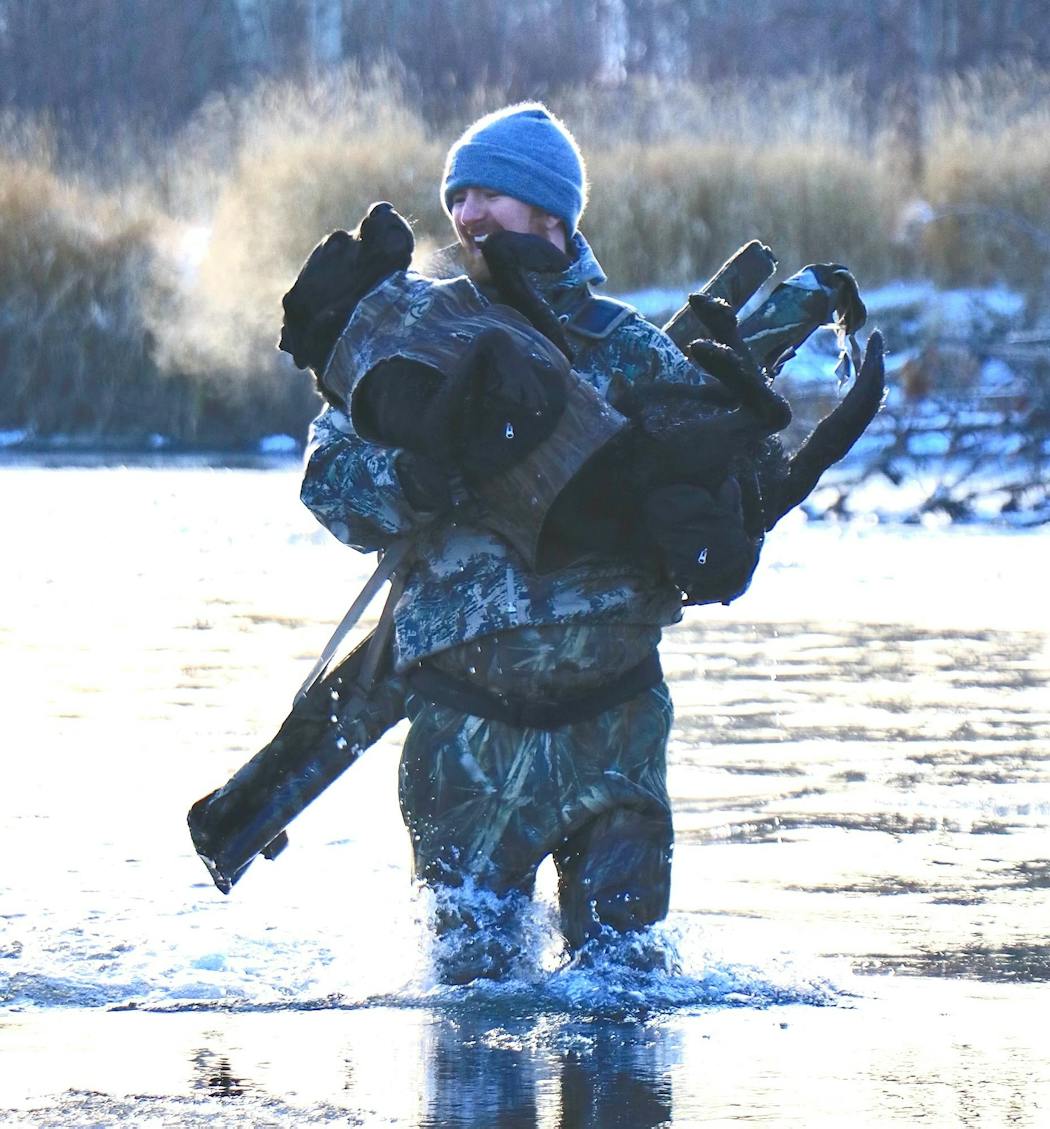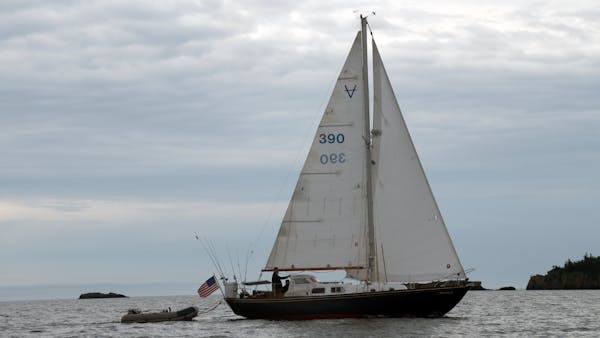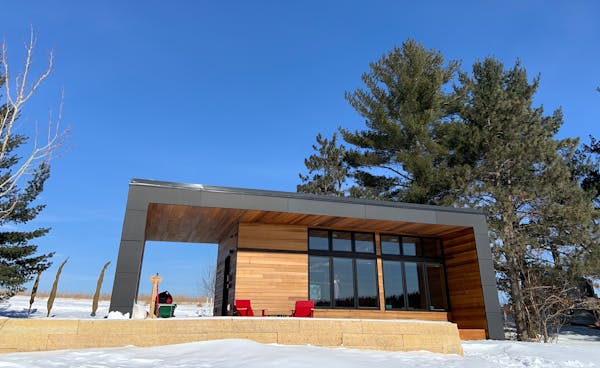When I was a kid, our family had a cocker spaniel we named Elvis, because when he was happy, which was all the time, he wiggled his butt. This was in addition to my dad's hunting dog, a Labrador, and though I was only in fourth grade I remember the evening Elvis was hit by a car and killed. The car had sped by our house on the outskirts of Rugby, N.D., trailing a plume of dust. Dad gave chase, but nothing good came of it. Nothing could.
In the years since I've been without a dog only for brief periods. Even when I drove a truck I had a dog, a yellow Labrador, Boogie, that I bought as a puppy one weekend when I was laid over in Atlanta. I was leaving for Boston the next day and kept the little guy in a cardboard box between my seat and what truckers with good reason call the dummy seat, or passenger seat. Sometimes going entirely airborne, Boogie grew up bouncing in my Freightliner, never doubting, I'm sure, he had the best life ever.
With the pheasant opener this weekend, I've been thinking about dogs that are bred and trained for this special October day. Many seem to have internal calendars that whisper, "Get ready!" and dogs that hear this siren call often lie on orange hunting vests next to a wingshooter's door, or throw a paw over a pair of timeworn boots, to make sure they're not left behind.
For these dogs, at these moments, in ways that often elude people, the world makes sense.
The problem, as my dad told me early on, is that with each new dog, an end is foretold. "You have to accept," he said, "that dogs don't live forever."
Our family was reminded of this again a few weeks back when Del, a black Labrador who recently celebrated his 13th birthday, grew weaker and weaker.
He won't see this year's pheasant opener, or any others.
Del was not quite 2 years old when I imported him from England. He was intended to go to someone else, but his big eyes and wagging tail did a number on my wife, Jan, when she picked him up at the airport, and that was that.
"Don't worry, Del," Jan told him. "You've made your last stop."
A superb upland hunter and a better waterfowl dog, Del nevertheless was a piece of work. He was handsome, but more so, pretty. He didn't walk, he pranced. And when he slept on our two sons' beds as if they were his own, he splayed on his back, legs wide open, his head cocked to one side, snoring.
Some years ago, our younger son, Cole, was a patient at the Mayo Clinic, and he asked me to bring Del to the hospital to visit him and, sometimes, to stay overnight. Restrictions govern these visits. But Del, with his big eyes and bigger heart, was granted a waiver and soon was hanging out with every kid on the floor.
The only request the Mayo nurses made was that when Del was on site we put a sign on Cole's door saying, "Dog in the room." One evening, late, I forgot to do this, and when Cole went to the bathroom, Del spread out on Cole's bed, lying on his back, with his head on the pillow, snoring.
Just then a work shift occurred and a nurse new to the floor opened the door to check on Cole. Instead she saw a furry creature asleep in Cole's bed, IV poles on either side and a heart monitor flatlined.
"Oh my God!" she shrieked. "What happened?"
In his day, Del saw a lot of open country and loved it all. He picked up pheasants on shooting estates in Britain, traveled to Canada with me for ducks, and hunted ducks and pheasants in Minnesota and the Dakotas. Only rarely did he see the inside of a dog crate. Early on he made it clear he would be transported only in a pickup, with his head on someone's lap, the heater on, and music playing.
Our older son, Trevor, had a good Labrador, Ben, with him in college, in Montana, and hunted him a lot. When Ben aged out, Trevor leaned on his mother to swap Ben for Del. He might as well have asked her for the air she breathed. But in the end, Del was put on a plane, headed to new hunting grounds, another soft bed and a different model of warm pickup.
Del sired a lot of good puppies. In breeding parlance he "threw his kind," and I'm training one of his sons now, Flynn, whose way of sleeping on his back is telltale of his lineage.
In Del's last hour, we brought Flynn to his dad's side, the one dog with fresh eyes and a happy tail, the other valiantly carrying on, quite aware, I'm sure, he was on the doorstep of another world.
We also thawed a training duck, a mallard, and laid it alongside Del, figuring he might want to make peace with his old nemesis. Surprised at the bird's presence, Del recoiled slightly, acknowledging perhaps the inevitability of this cease-fire, and all cease-fires, while holding out that detente with this lifelong retrieving foe might be a bridge too far.
Franz Kafka, the Czech author, once wrote, "All knowledge, the totality of all questions and answers, is contained in the dog."
Seeing his family gathered around him, Del closed his eyes a final time, doubtless, as always, worried more for us than for himself.
Anderson: Canoeist found dead in BWCAW was experienced
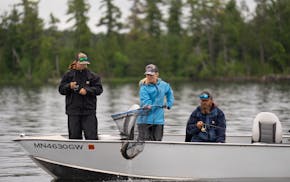
Anderson: In early June, Minnesota fish are begging to be caught. Won't you help?
